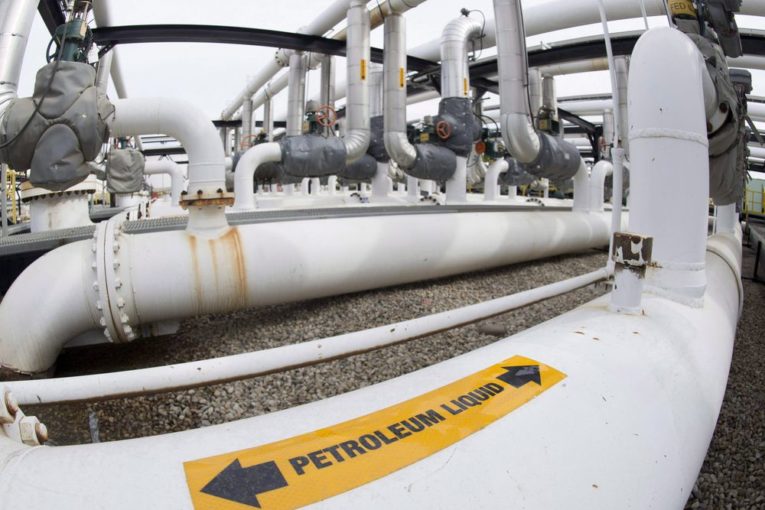
OTTAWA — A Vancouver-based environment charity is readying to go back to court if — or they believe when — the federal government re-approves the Trans Mountain pipeline expansion next year.
The Wilderness Committee returned $25,000 in participant funding to the National Energy Board last month citing the short timeline for the board’s new review on the marine effects of the proposed expansion.
Peter McCartney, climate campaigner for the committee, says the timelines are so short it underscores his belief the government is doing this just to fulfil the Federal Court of Appeal’s concerns with the original review, rather than to seriously reconsider the approval given to the project.
“They’re going through the motions but they’ve already made up their mind,” he said. “I don’t know what confidence they’re trying to inspire in people to trust this review.”
Prime Minister Justin Trudeau has said many times the pipeline is going to be built. His government stepped in to buy it and build the expansion itself when political opposition left Kinder Morgan and its shareholders unwilling to continue. In an interview last week, Trudeau said any decision to move forward will be made as the review process is completed.
“What’s at issue here is not just this pipeline,” he said. “It’s our capacity as a country to get our resources to market.”
However, McCartney said the government’s actions suggest the Liberals are going to approve it again no matter what, and he warned they should expect another lawsuit as a result.
“Absolutely there will be,” he said. “People are already talking about that.”
The federal cabinet approved Trans Mountain in the fall of 2016. That approval was challenged by several environment groups and Indigenous communities who argued the original review didn’t properly consider effects on marine life from the extra oil tankers required to carry more oil away from the marine terminal where the pipeline ends.
Indigenous communities also felt their concerns had not been addressed as is required by the constitutional duty to consult them.
The Federal Court of Appeal agreed and in August tore up the cabinet’s approval for the project, halting construction.
In response, the federal Liberals ordered a new round of Indigenous consultations and also asked the NEB to do a more thorough look at marine effects. There is no specific timeline for the Indigenous consultations but the government gave the NEB only until Feb. 22 to complete its work.
The NEB’s original review did conclude that there would be negative effects on marine life, including killer whales. But the board said marine effects were outside its jurisdiction and, therefore, had no effect on its decision to approve the project.
Conservative natural resources critic Shannon Stubbs said the fact that environment groups are already planning another lawsuit is proof of the energy industry’s contention that environmentalists don’t want proper consideration given to the project, but rather want to delay it enough to eventually kill it.
“They will just do everything to stop it.”
Chris Bloomer, president of the Canadian Energy Pipeline Association
Chris Bloomer, the president of the Canadian Energy Pipeline Association, said the government needs to get its new energy project assessment legislation fixed in order to prevent endless lawsuits on future projects.
Bill C-69, the Impact Assessment Act, is a major overhaul of how big projects are assessed for economic, environmental, social and health impacts. Bloomer believes if the bill passes as is, it will mean not a single new project will ever be approved in Canada again.
He said the bill as it is leaves so much room for interpretation and gives so much discretion to the environment minister, it will create more legal challenges to any future projects, not fewer.
“This is an avenue you can drive a truck through in terms of challenging it,” he said. “It’s so opaque and so vague as to who makes the determination.”
You can read more of the news on source
